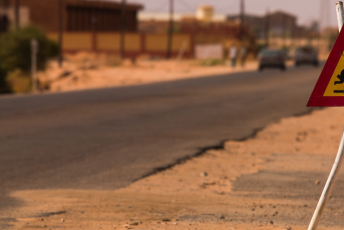Criminals make around US$150 million a year on the West Africa-to-Europe migrant smuggling route, according to the United Nations Office on Drugs and Crime. Migrant smuggling has increased in this part of Africa over the past decade due to it being lucrative for criminal networks operating particularly from Senegal.
Despite measures such as increased border checks and better cooperation with neighbouring countries like Morocco, Senegal remains a country of origin for Europe-bound migrants. In September 2019, Senegalese police in charge of fighting smugglers dismantled a criminal network that had moved 110 migrants to Spain via Morocco between June and August 2019. The migrants were mainly from the Senegalese north-western Louga region.
According to the police the criminal network, comprising prominent business people in Dakar, generated 165 million CFA ($276 276) in those three months, as each migrant paid 1 500 000 CFA ($2 551).
This latest incident highlights the emergence of new regions as the main departure points for migrants. Over the past decade, coastal cities such as Saint Louis, Mbour and Joal, and some fishing villages such as Thiaroye, Guet Ndar and Soumbedioune, constituted the main departure points to Europe.
The north-eastern region of Louga has become an important centre for human smuggling over recent months. Illegal immigrants reportedly travel first by air or car to Morocco, from where they are smuggled to Spain by well-organised criminal networks.
This shift by criminal networks to other regions is due to increased surveillance by government authorities at the traditional points of departure. This is according to a Senegalese migration expert and officer at the International Organization for Migration who spoke to ENACT on condition of anonymity.
‘Louga is a region where people have a strong tradition to migrate. In addition, most youth who are unemployed are determined to migrate to Europe. And the criminal networks find this [a potentially] lucrative market,’ the officer said.
Despite the government’s will to stop this problem, there is no specific law criminalising human smuggling in Senegal, as is recommended by Article 5 of the Protocol to Prevent, Suppress and Punish Trafficking in Persons, Especially Women and Children.
There is however a law criminalising human trafficking. In 2005, Senegal adopted Law No. 2005-06 in the fight against trafficking in persons and similar practices and the protection of victims. This law mentions human smuggling in its second chapter but doesn’t criminalise it.
With this problem increasing rather than abating, the Senegalese government should adopt a legal framework that criminalises migrant smuggling. The government should also invest in prevention programmes by educating people in the main cities of origin on the harmful effects of migrant smuggling. Last, the Senegalese government should strengthen cooperation with transit countries such as Morocco and Niger through the useful exchange of information.
Mouhamadou Kane - Researcher, ENACT project, ISS







